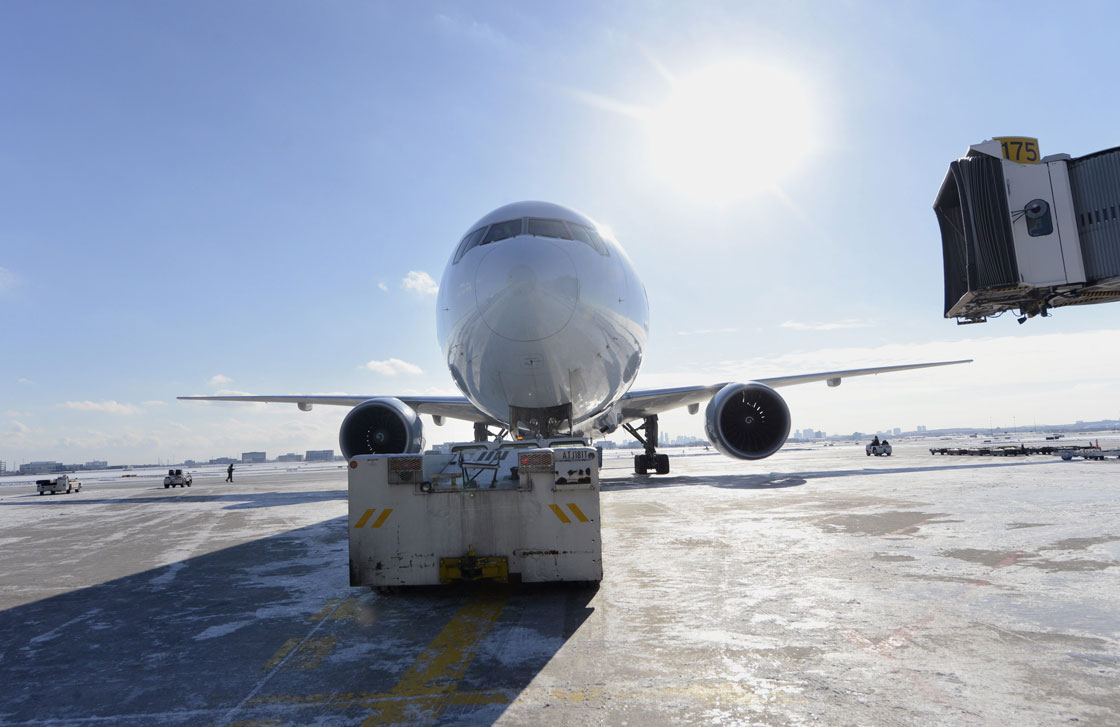The International Air Transport Association, a trade group, said this week travellers around the globe stand to benefit considerably from the sudden drop in jet fuel prices this year, which is saving airlines a lot of money.

“Consumers will benefit substantially from the stronger industry performance as lower industry costs and efficiencies are passed through,” the IATA said.
The “substantial” savings passed through will amount to an estimated 5.1 per cent off the average ticket price – “excluding taxes and surcharges.”
Jet fuel prices have fallen more than 30 per cent this year as oil prices continue to slide. Fuel costs are the biggest expense for a carrier, representing anywhere between a third and up to half of an airline’s operating budget.
With their biggest cost falling sharply, the IATA said it expects carriers to report record profits next year. “Lower oil prices have the potential to boost airline profits significantly by lowering fuel costs,” analysts a investment research firm Raymond James said in a note this week.
New fees help too
The trade organization said North American carriers including WestJet and Air Canada will benefit more than other regions where overall economic growth is more sluggish. “The strongest financial performance by far is being delivered by airlines in North America,” the IATA statement said.
North American carriers are making more money from lower fuel prices but also from “ancillaries” the trade group said, or additional fees on things like baggage and access to Wi-Fi Internet on planes.
WestJet and Air Canada, the country’s two primary airlines, implemented new baggage fees this fall. The airlines also plan wider roll-outs of Wi-Fi availability on planes next year that will charge customers for access to the web and for in-flight entertainment.
MORE: Here’s what Canadian airlines will charge new fees on next
Canadian carriers hold line
Even with the new benefit of baggage fees, Canada two biggest airlines have held the line on pricing during oil’s tumble. Both cite the falling dollar as one reason why falling fuel prices won’t necessarily be passed onto customers.
“Fuel is purchased in US dollars, which has had an unfavourable impact due to the recent relative decline in the Canadian dollar,” Air Canada spokesperson Peter Fitzpatrick said in an email message.
“Canadian airlines are not enjoying the same cost savings that US airlines are seeing because we buy fuel (and aircraft and other expenses) in US dollars,” WestJet spokesperson Robert Palmer said in an email.
The loonie touched a new five and-a-half year low on Friday. “We are paying a hefty premium on foreign exchange,” Palmer said.
Palmer said there’s also a lag between the fall in oil prices and WestJet’s own fuel costs. Airlines sometimes “hedge” their fuel costs by purchasing contracts at set prices over several months.
“We buy our fuel in bulk, and it takes time to realize any savings,” Palmer said.
Experts suggest the carriers could begin tweaking prices around the early spring. “We continue to consider adjustments to pricing,” Fitzpatrick said.
WATCH: When oil plummets, it’s not just gas that gets cheaper. The cost of jet fuel is down 30 per cent from what it cost six months ago. But passengers aren’t seeing a drop in ticket prices just yet. Jennifer Tryon reports.


Comments